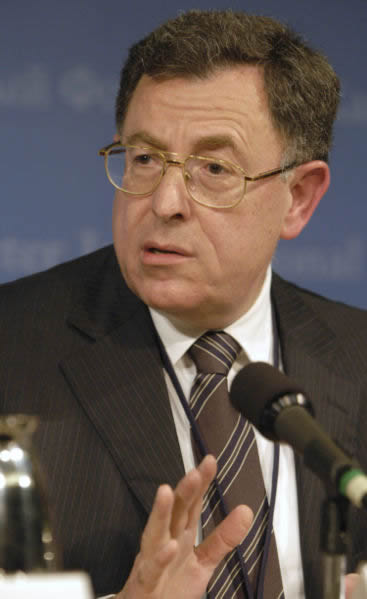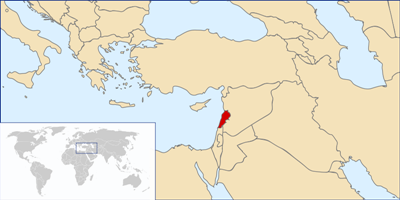|
||||||||||||||||||||||||||||||||||||||||||
The World and Universal Academy Foundation has for ideal goals to promote the arts, the culture and the peace world-wide.
|
||||||||||||||||||||||||||||||||||||||||||
ELECT THE BESTS POLITICIANS OF ASIA (2007/08) |
ÉLISEZ LES MEILLEURS POLITICIENS D'ASIE |
 |
Fouad Siniora |
Prime Minister of Lebanon |
Premier Ministre de la République libanaise
|
 |
Fouad Siniora (alternative spellings: Fouad Sanyoura, Fuad Siniora, Fouad Saniora, Fouad Seniora) (Arabic: فؤاد السنيورة, Fu'ād As-Sanyūrah) is the interim Prime Minister of Lebanon, a position he assumed on 19 July 2005, and which officially ended with the end of president Emile Lahoud's term. Early Life Siniora was born into a Sunni Muslim family in Sidon in 14 April 1943. He holds a degree in business administration from the American University of Beirut. After working for Citibank and teaching at his alma mater in Beirut in the 1970s, Siniora worked for the Central Bank's audit committee before being employed by late Prime Minister Rafik Hariri in 1982 in his rapidly growing business empire. Siniora was Minister of Finance for most of the post-war period in Lebanon in Hariri's successive cabinets. Political career Fouad Siniora has strong ties with international finance. Strongly pro-business, he is considered a partisan of free trade. He was a close adviser to late Rafik Hariri and he is very close to his son Saad Hariri. He served as finance minister from 1992 to 1998 and again from 2000 to 2004. Siniora was the main designer of the Paris II conference in November 2002 which allowed Lebanon to get US$2.6 billion. He was accused of corruption and mismanagement after Hariri's ousting in 1998, in what was mainly viewed as a conflict between Hariri and President Émile Lahoud. Siniora was cleared of all charges in 2003 by the parliament. In 2002, he abolished most of Lebanon's duty taxes and introduced a Value Added Tax. On 12th August, he cautiously welcomed a new UN agreement, as voted for by the UN security council. Opposition to the Siniora Government On November 13, 2006, Hezbollah-Amal-backed ministers resigned from Siniora's cabinet to protest the establishment of the international tribunal investigating the assassination of PM Rafiq Hariri in 2005, which the Siniora government, as well as the United States, have accused the Syrian intelligence service of involvement in, a charge denied by Syria. The Lebanese opposition claims that this resignation means that the Siniora Government is not a legitimate one because it does not represents all ethnic groups in Lebanon, namely the Shiite Lebanese. They demand an increase in opposition representation in the cabinet, sufficient to hold veto power over decision making, as their requirement for returning. The government sees this as a Syrian-orchestrated move to block the establishment of the Hariri tribunal. On December 1, 2006, the opposition, primarily the Shiite parties of Amal and Hezbollah, and the Christian Free Patriotic Movement of Michael Aoun, launched a campaign of street demonstrations with the goal of creating a national unity government, and the country remains in crisis. Recent negotiations between Saudi Arabia which supports Siniora, and Iran which supports the opposition, show promise of producing a power sharing compromise for the country, but Siniora, with strong support by the Arab countries, the United States, France, and the United Nations, in addition to the Lebanese Parliamental Majority, remains opposed to giving the opposition a veto-wielding block in the cabinet. |
|
FRANÇAIS |
Fouad Siniora (aussi retranscrit par Fuad Siniora, Fouad Seniora) (1943, Sidon) (arabe : فؤاد السنيوره) est un homme politique libanais. C'est l'actuel premier ministre du Liban. |
 |
From Wikipedia.org |

